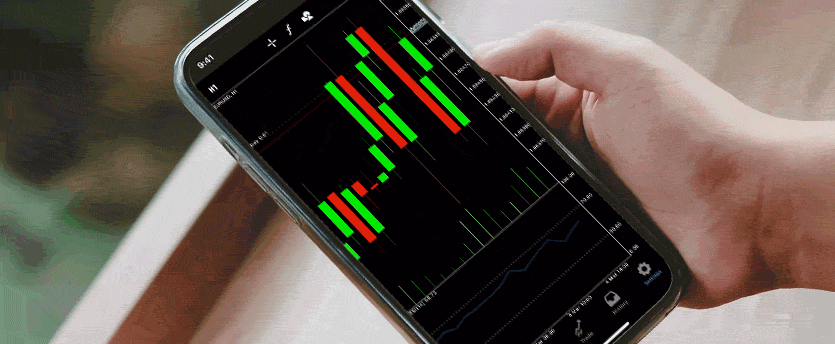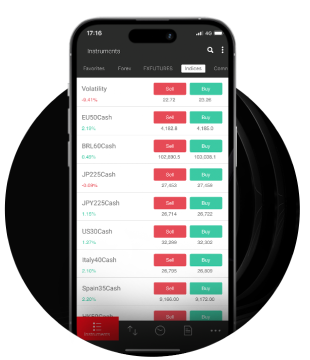When it comes to online trading, day trading e ainda swing trading are two of the most popular styles among active traders. Both are designed for traders who want to explore short-term fluctuations in price but they differ widely with respect to the time needed for each, risk exposure, and the psychological stress involved.
For example, a full-time day trader would start his/her day before the market opening, looking for volatile pairs, setting indicators, and preparing for intraday action. In a hypothetical scenario, they may go long after a stock that rises due to a strong earnings report. This would do so the moment the market opens, closing it within a few minutes or less than an hour.
This trader may make five or seven trades at the close of the day. They often close all positions before the market closes to avoid overnight risk.
Day Trading vs Swing Trading
On the other hand, consider the example of a part-time swing trader.
They may have a day job and use the evenings to analyse charts and study fundamental drivers.
In a similar hypothetical scenario, this swing trader may identify a strong uptrend in a CFD share. They could then enter a position, expecting the bullish momentum to continue for a few days.
Also may hold for five days but this type of strategy won’t require them to be glued to their screens watching the markets minute-by-minute. They may be comfortable holding positions overnight or even over weekends.
While both traders aim for profit through short-term price movements, the day trader’s strategy thrives on speed and precision.
The swing trader’s approach, however, values patience and broader technical trends.

So, which is better, day trading or swing trading?
It entirely depends on your lifestyle, risk tolerance, capital, and mental composition. Here, the two strategies will be compared across the most important dimensions. This way, traders can see which might be best suited to different needs.
How much time do you have to commit to trading?
One of the most obvious differences between day trading and swing trading is the amount of time that is required.
Traders need to be extremely active, and deal with the markets in real-time. Traders must observe price action, news, and technical indicators all day long during the trading day. This is a job rather than a hobby. Only those who can spare a few hours each day should pursue it.
On the other hand, swing trading allows for more flexibility. It is possible to examine setups outside of market hours because trades are overnighted to capitalise on market movements outside of regular trading hours and can be left running over several days or weeks. Also is more suited for part-time traders or traders who cannot sit in front of a screen all day.
If it’s something you can spare time for, day trading may be for you.
Traders can also pursue it as a full-time profession. If you have other obligations or a job, swing trading is more accommodating.
How many trades and for how long to hold them?
If the goal is to become a day trader, then you will need to close all positions within the same session, so you avoid extra costs from keeping them open overnight. A day trader can make anywhere from several to dozens of trades in one session.
On the other hand, a swing trader has the flexibility to hold positions for multiple days, and sometimes even for weeks. A swing trader will focus on exploring larger price movements rather than small intraday fluctuations.
While both types of traders seek to exploit short-term price movements, they do so at different time scales. A day trader will be exposed to the market for shorter periods of time such as minutes and hours whereas a swing trader may be for days and weeks.This difference obviously affects each type of trader’s strategy and risk.

How much money do I need?
A day trader will need more initial capital, particularly in markets like US equities where the Pattern Day Trader (PDT) rule necessitates a minimum of $25,000 to execute more than three day trades within five business days.
On the other hand, a swing trader can trade with less, especially in markets like forex or CFDs. Which use margin and allow overnight holding.
For those who are new or don’t have a massive capital and want to explore the markets without feeling their life depends on it, swing trading may be a less intimidating entry point.
Risks and rewards
When it comes to day trading, traders may aim for lower returns per trade, but they execute many trades throughout the day. Because they do not hold positions over night, they don’t have to worry about gaps occurring as a result of surprising news released after hours.
With swing trading, things are a little bit different. Swing traders may experience higher profits but, overnight and weekend risks such as geopolitical announcements or surprise releases of economic data can create price gaps.
To avoid unexpected surprises and manage your trades more responsibly, you need to have a risk management plan in place. No matter your trading style, using stop-loss and take-profit levels is essential to mitigate risk and secure potential profits.

Which one is more emotionally draining?
Day trading can be both mentally and emotionally draining Because traders have to be able to make quick decisions, promptly deal with losses, and just the high volume can cause them to feel burned out.
With swing trading, traders are required to have patience and show discipline, as price action is over a larger time frame. While it can be less stressful on a day-to-day basis, the psychological challenge is often from watching trades progress over several days.
When it comes to psychology, not all traders respond the same way and some become heated when in a squeeze, while others may take a more subdued approach. So, if you are between one or the other style, you should choose what will allow you to be within your psychological comfort zone.
Commissions and Fees
The more you trade, the more commissions you may have to pay and the more slippage. This is the case with day trading, as the more trades, the more fees. Even if you have the luck to be registered with a commission-free broker, spreads and slippage could eat into profits.
With swing trading, the less trades, the lower your costs will be. You might have overnight financing (swap) costs, especially on leveraged forex or CFD positions. If you want to keep a small account, then may be a more suitable option.
Day trading or swing trading: Which one is more suitable for you?
There is not a right or wrong answer, but whichever suits you and your lifestyle. It is all about aligning your strategy with your personality, schedule, risk tolerance, and financial goals.
Choose day trading if:
Dedicate full-time hours, enjoy fast-paced decision-making, are comfortable with high-frequency trading environments and have sufficient capital and access to professional tools.
You should go for swing trading if:
You want to trade part-time, prefer thoughtful analysis over rapid-fire decisions, can tolerate holding positions overnight and you’re starting with a smaller account.
Most traders may try to do both and then decide which they like best. Some even swing trade key positions but make an occasional when the opportunity arises. Either way, maintaining a healthy lifestyle, keeping yourself updated, and managing risk effectively will help you stay focused and explore the markets with confidence.
Aviso de Isenção:
Estas informações não são consideradas aconselhamento de investimento ou recomendação de investimento, mas sim uma comunicação de marketing.
















